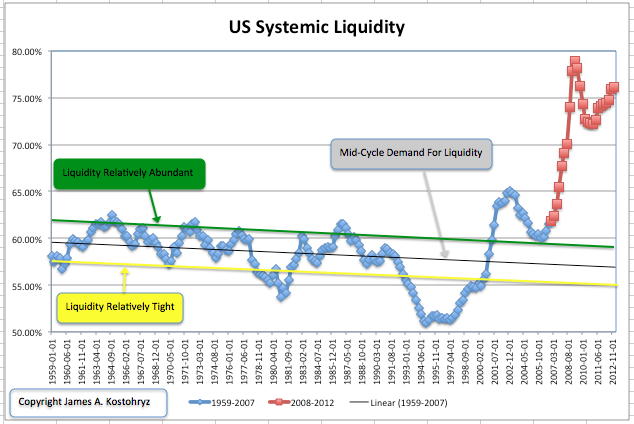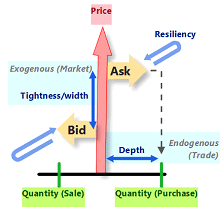Liquidity risk stock market
As a new investor, you might come across a concept known as liquidity risk. It is important you understand what liquidity risk is and why it is important because it could pose a significant threat to your financial well-being unless you protect against it.
Although I've explained how some investors strive to pay off their home mortgage debt early but find themselves bankrupted due to the liquidity crunch they created for their household , I wanted to stop to talk about the specifics of how liquidity risk can attack you in other, unexpected ways. In the simplest terms, liquidity risk refers to the risk that an investment won't have an active buyer or seller when you are ready to buy or sell it.

This means you will be stuck holding the investment at a time when you need cash. In extreme cases, liquidity risk can cause you to take huge losses because you have to mark down your property at fire sale prices to attract buyers.
One of the reasons for the losses suffered by financial firms during the Great Recession was the fact that these companies owned illiquid securities.
Liquidity Risk
When they found themselves without enough cash to pay the day-to-day bills, they went to sell these assets but discovered that the market had dried up completely.
As a result, they had to sell at any price they could get - sometimes as low as a few pennies on the dollar! The management foolishly used this short-term money to buy long-term investment s that weren't liquid - or rather, assets that became illiquid after the meltdown.
When the short-term money was withdrawn, the firm couldn't come up with the cash because they couldn't sell the long-term, illiquid securities fast enough to meet obligations.
The stockholders were nearly wiped out despite the fact that Lehman was profitable and had a multi-billion dollar net worth. On the upside, there is opportunity with liquidity risk because other companies and investors that were flush with cash were able to buy distressed assets. Some of these "vulture" investors made a killing because they had balance sheets that could support holding non-liquid investments for long periods of time.
To compensate for liquidity risks, investors often demand a higher rate of return on money invested in illiquid assets. That is, a small business can't be easily sold in most cases so investors are likely to demand a higher rate of return for investing in shares of it than they would a highly liquid blue chip stock.
Likewise, investors require a much smaller return for parking money in the bank. There are several different types of liquidity risk but I'm only going to teach you about the three major ones that are likely to afflict regular investors. Search the site GO. Investing for Beginners Portfolio Management Basics Stocks Bonds ETFs Mutual Funds Retirement Real Estate Balance Sheets Income Statements Personal Finance Value Investing Economics.
Updated September 18, Protecting Yourself Again Liquidity Risk There are several ways you can help protect yourself from liquidity risk. Never buy long-term investments that are illiquid unless you can afford to hold them through terrible recessions and job loss.
The Fed - Supervisory Policy and Guidance Topics - Liquidity Risk Management
If you might need cash in six months, don't buy 5-year certificate of deposits or an apartment building. Remember that your total debt is less important as the amount of excess cash you have after making your debt payments each month. All else being equal, the bigger the cushion between the cash you earn each month and the cash you pay out, the less the chance you get caught in a liquidity risk crisis. Avoid investing in companies that are facing potential liquidity risk.
Are there any big debt refinancing plans that could risk the company's well-being? Does the company have a solid balance sheet with long-term funding sources, such as shareholder equity instead of short-term deposits? If you don't understand what this means, you should probably stick to low-cost, widely diversified index funds.

Get Daily Money Tips to Your Inbox Email Address Sign Up. There was an error. Please enter a valid email address. Personal Finance Money Hacks Your Career Small Business Investing About Us Advertise Terms of Use Privacy Policy Careers Contact.